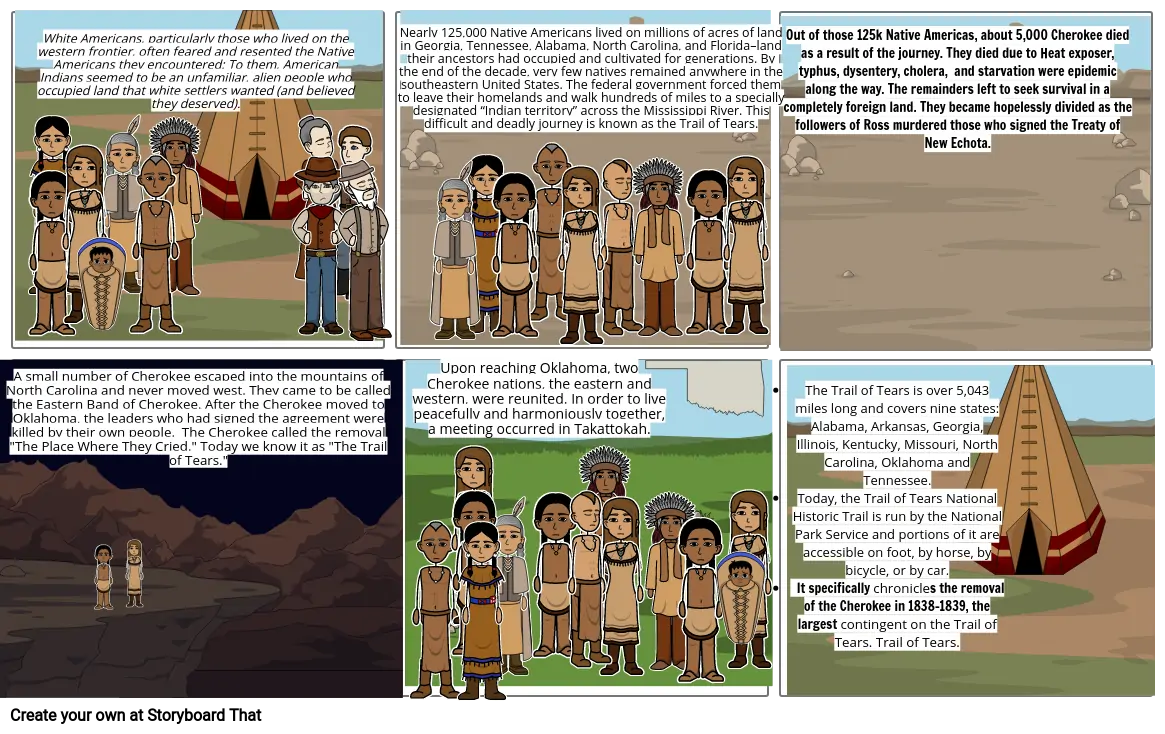Project 3

תיאור Storyboard
Trail of tears
טקסט Storyboard
- White Americans, particularly those who lived on the western frontier, often feared and resented the Native Americans they encountered: To them, American Indians seemed to be an unfamiliar, alien people who occupied land that white settlers wanted (and believed they deserved).
- Nearly 125,000 Native Americans lived on millions of acres of land in Georgia, Tennessee, Alabama, North Carolina, and Florida–land their ancestors had occupied and cultivated for generations. By the end of the decade, very few natives remained anywhere in the southeastern United States. The federal government forced them to leave their homelands and walk hundreds of miles to a specially designated “Indian territory” across the Mississippi River. This difficult and deadly journey is known as the Trail of Tears.
- Out of those 125k Native Americas, about 5,000 Cherokee died as a result of the journey. They died due to Heat exposer, typhus, dysentery, cholera, and starvation were epidemic along the way. The remainders left to seek survival in a completely foreign land. They became hopelessly divided as the followers of Ross murdered those who signed the Treaty of New Echota.
- A small number of Cherokee escaped into the mountains of North Carolina and never moved west. They came to be called the Eastern Band of Cherokee. After the Cherokee moved to Oklahoma, the leaders who had signed the agreement were killed by their own people. The Cherokee called the removal "The Place Where They Cried." Today we know it as "The Trail of Tears."
- Upon reaching Oklahoma, two Cherokee nations, the eastern and western, were reunited. In order to live peacefully and harmoniously together, a meeting occurred in Takattokah.
- The Trail of Tears is over 5,043 miles long and covers nine states: Alabama, Arkansas, Georgia, Illinois, Kentucky, Missouri, North Carolina, Oklahoma and Tennessee. Today, the Trail of Tears National Historic Trail is run by the National Park Service and portions of it are accessible on foot, by horse, by bicycle, or by car. It specifically chronicles the removal of the Cherokee in 1838-1839, the largest contingent on the Trail of Tears. Trail of Tears.
נוצרו מעל 30 מיליון לוחות סיפור

